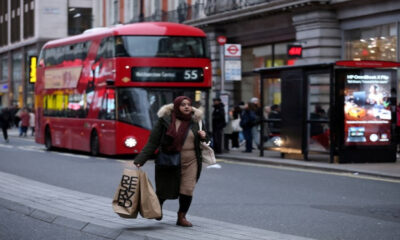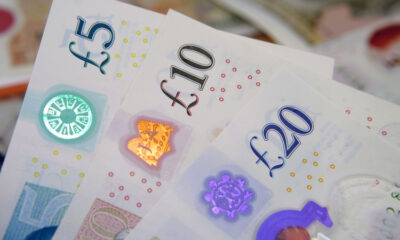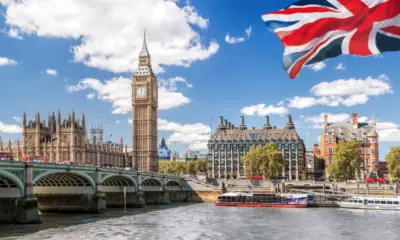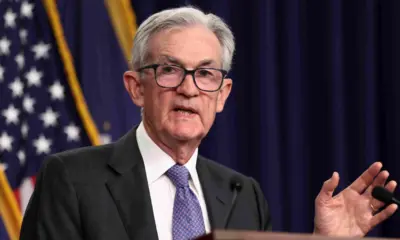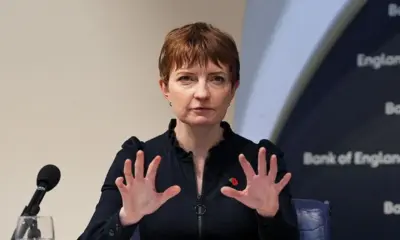Trending
Inflation Turns Vacations Into “Staycations”

Airports Full, Wallets Empty
The world is traveling again. Airports are packed, suitcases are overstuffed, and boarding gates echo with the familiar cry: “Final call for passengers who can’t afford this trip.”
Global tourism is officially “back,” but the price tags suggest otherwise. Airfare, hotels, and even a bottle of airport water now cost more than a small crypto portfolio. Travelers say the only thing that hasn’t gone up is their salary.
Tickets: Now a Luxury Item
According to industry data, flight prices have climbed nearly 30% in the last two years. Airlines blame fuel costs, inflation, and “recovery challenges.” Passengers blame capitalism and memes.
Budget airlines once promised cheap escapes to sunny beaches. Now they offer “affordable-ish” fares that come with no legroom, no luggage, and no soul. A family of four flying economy to Europe now faces the same bill as buying a small used car, minus the air-conditioning.
Hotels: More Expensive Than Houses (Literally)
Hotels, too, are part of the inflation game. Even three-star accommodations in popular cities charge like they’re running a five-star spa. Breakfast buffets are shrinking, Wi-Fi is unstable, and yet the bill resembles a down payment on an apartment.
One traveler posted on Twitter: “Checked into my hotel. The room was smaller than my crypto wallet. At least the wallet sometimes grows.”
Crypto Tourism: A New “Destination”
As travel prices rise, some adventurers are turning to crypto for funding. Memecoins may not buy you stability, but occasionally they fund a plane ticket. Stablecoins like USDC are increasingly used in global transfers, with some digital nomads swearing it’s easier to pay rent in Bali with stablecoins than with their local banks.
Still, crypto is far from a travel guarantee. Bitcoin’s volatility means your round-trip ticket could vanish overnight. Ethereum’s fees sometimes cost more than the taxi ride from the airport. And memecoins? They’ll take you places, just usually straight back to your parents’ couch.
Tourism Boards Join the Meme Game
Even governments are catching on. A few tourism boards are exploring crypto payments to attract younger travelers. One small island recently advertised itself as “the first Dogecoin-friendly paradise.” Another Asian city announced it accepts stablecoins for public transport passes.
In online forums, some joked: “At this rate, the Louvre will charge in Pepe tokens, and Disneyland tickets will come as NFTs.”
And somewhere in the chaos, experimental spaces like RMBT have been cited in casual debates—not as travel agencies, but as places where digital communities test how memes, polls, and vibes influence real-world decisions. One traveler even wrote: “Forget TripAdvisor, I trust a viral RMBT poll more to tell me where not to go.”
Inflation’s Souvenir Shop
Inflation has turned souvenirs into status symbols. A fridge magnet in Paris now costs as much as dinner. Street food in Bangkok has doubled in price. And don’t even ask about New York hot dogs.
Tourists find themselves calculating exchange rates like mathematicians. Local vendors shrug, saying global supply chains, energy costs, and currency fluctuations leave them no choice. Meanwhile, travelers use coping strategies: eating instant noodles in hotel rooms, sharing Airbnbs with strangers, or simply pretending every expense is “an investment in memories.”
Public Reaction: Tired but Still Traveling
Despite the high costs, people are still traveling in record numbers. Psychologists explain it as “revenge travel”—a reaction to pandemic lockdowns. Citizens explain it more simply: “I’ll go broke, but at least I’ll post it on Instagram.”
Social media is flooded with reels of beaches, cafes, and city skylines. But behind every aesthetic clip is a traveler quietly checking their banking app, whispering: “Please let USDC hold steady until I get home.”
Meme of the Week
Image: Airplane with “Inflation Airlines” written on the side.
Caption: “Boarding now: dreams, wallets, and your last bit of hope.”
Analysis: Travel Is the New Flex
In today’s world, travel is no longer about where you go, but whether you can afford to go. Plane tickets are trophies. Hotel check-ins are bragging rights. And paying in crypto is the ultimate flex, even if your coin crashes before checkout.
Economists warn that the tourism bubble may pop. Rising costs could push ordinary travelers back into staycations. But for now, airports are crowded, wallets are light, and governments keep promising infrastructure upgrades that somehow never extend to the baggage claim area.
Conclusion
Travel has always been about escape, from work, from stress, from routine. But in 2025, travel also means escaping your financial comfort zone. Inflation, crypto chaos, and overpriced hotels haven’t stopped people yet. They just add more memes to the journey.
So whether you’re paying in dollars, euros, USDC, or just bartering with your sanity, one thing’s certain: the destination might change, but the economic turbulence is guaranteed.
And if all else fails? There’s always the RMBT poll to decide whether you should’ve stayed home.

